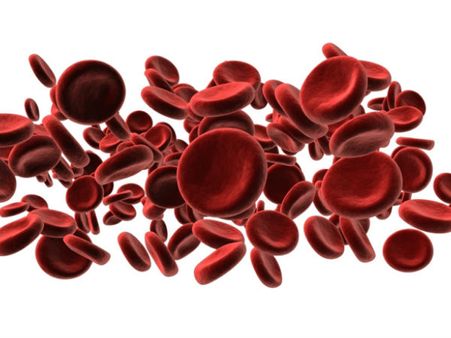Just In
- 2 hrs ago

- 6 hrs ago

- 9 hrs ago

- 10 hrs ago

Don't Miss
- Education
 UP Board Result 2024: 82% of Jail Inmates Passed the Class 12 and 97% of the Class 10
UP Board Result 2024: 82% of Jail Inmates Passed the Class 12 and 97% of the Class 10 - News
 Bengaluru Water Crisis: PM Modi Slams Karnataka Congress, Says Mismanagement Turned Tech City To Tanker City
Bengaluru Water Crisis: PM Modi Slams Karnataka Congress, Says Mismanagement Turned Tech City To Tanker City - Movies
 Queen Of Tears Episode 14 OTT Release Date, Time, Platform: When & Where To Watch? What To Expect? DEETS Out
Queen Of Tears Episode 14 OTT Release Date, Time, Platform: When & Where To Watch? What To Expect? DEETS Out - Automobiles
 Tata Altroz Records a 55% Sales Growth in March 2024
Tata Altroz Records a 55% Sales Growth in March 2024 - Sports
 IPL 2024: DC vs SRH Live Score & Updates; Travis Head smashes 16-ball fifty; SRH off to a blistering start
IPL 2024: DC vs SRH Live Score & Updates; Travis Head smashes 16-ball fifty; SRH off to a blistering start - Finance
 Rs 17.50/Share Dividend: Tata Mid Cap To Consider Dividend On April 29, LIC Stake 9.88%
Rs 17.50/Share Dividend: Tata Mid Cap To Consider Dividend On April 29, LIC Stake 9.88% - Technology
 Best Noise-Cancelling Earbuds Under Rs 5,000: CMF Buds Pro, Redmi Buds 5, Realme Buds Air 5, and More
Best Noise-Cancelling Earbuds Under Rs 5,000: CMF Buds Pro, Redmi Buds 5, Realme Buds Air 5, and More - Travel
 Journey From Delhi To Ooty: Top Transport Options And Attractions
Journey From Delhi To Ooty: Top Transport Options And Attractions
Neonatal Screening: What Is Guthrie Test & What Can It Tell You?
Did you know that while most babies look healthy, there are some disorders that may not be externally visible? Early diagnosis and treatment of such disorders can help prevent serious complications in the future that may otherwise cause permanent damage to the baby or may even turn out to be a life-threatening condition. Guthrie Test is a neonatal screening done to check for one such disorder called Phenylketonuria (PKU).

PKU is a congenital birth abnormality characterized by the presence of high levels of amino acid, Phenylalanine (Phe) in the blood of neonates.

How Is Guthrie Test Done?
To do the test, a blood sample is taken from the baby's heel within 48 to 72 hours of age and tested. In case high levels of Phe are detected in the blood sample, the baby is placed on a Phe-restricted diet for a few years.
This can offset the neurological disorders that are expected with this condition. As the blood sample is taken from the baby's heel, it is also referred to as the ‘Heel Prick' test.

What Does The Guthrie Test Tell You?
The Guthrie Test was the first widely used perinatal biochemical test introduced since the early 1960s. Guthrie Test also known as PKU test or the ‘heel-prick test' is a diagnostic tool to test for phenylketonuria in infants.
The test detects phenylalanine in the blood of newborns, helping with early diagnosis of PKU. This helps prevent the development of the mental disabilities in thousands of individuals, who are affected by this condition annually.
Basically, PKU is an inherited metabolic disease, wherein the body does not produce the enzyme, phenylalanine hydroxylase. This enzyme is necessary to break down the amino acid phenylalanine in the blood. Individuals with PKU cannot digest high concentrations of this amino acid, which is present in protein-rich foods.
When this happens, the high levels of phenylalanine build up in blood, which leads to brain damage, mental disabilities and seizures. As per latest evidence, high levels of Phe may impair mental performance of the child later in life, and therefore, a Phe-restricted diet is recommended.

What To Do If The Guthrie Test Is Positive?
The blood sample for PKU test screening should be obtained within 48 hours after the birth of the baby. The normal level of Phe in a healthy baby's blood is less than 2 mg/dL. A level more than 4 mg/dL is considered high.
Sometimes, the test may show a ‘false positive', if your baby is premature, as the enzyme to break down the Phe would not have developed fully yet. Also, at times, a ‘false negative' may appear on the test if the test is done too soon after the baby was born, or if the baby has been throwing up often.
After the initial newborn screening test, a second test is done for verification and if it shows a positive result, a confirmatory quantitative test such as ‘McCamon-Robins Flurometric Test' is done by the laboratory at a referral metabolic centre.
The baby should be referred to a centre that is capable of providing the necessary medical, nutritional and laboratory services for babies with PKU. Apart from the Phe-restricted diet, the baby may require the assistance of professionals experienced in the management of PKU, and follow-up developmental testing is highly recommended.

Signs And Symptoms Of PKU
The signs and symptoms may vary from mild to severe depending on phenylalanine levels. If left undiagnosed and untreated, the infants appear normal until a few months old, and then begin to show few of these symptoms:
•
Intellectual
disability
•
Behavioral
problems
•
Seizures
•
Delayed
development
•
Psychiatric
disorders
•
Children
with
untreated
PKU
may
have
lighter
skin
and
hair
too

How To Manage PKU In Babies?
If your baby is diagnosed with PKU, the baby needs to be on a special Phe-low diet for the next couple of years or may be life-long, depending on the severity of the condition. The diet should begin as early as possible, ideally, within a week or 10 days after birth. If the baby is formula-fed, he or she would be put on a Phe-free infant formula.
A dietician who is also an expert in PKU can help you in making a specific eating plan so that your child grows to be healthy and active. Your child may have to eat carefully measured portions of low-protein cereals, vegetables, fruits, pasta and bread.
Just to help you in managing better, here's the list of foods with higher levels of Phe: dairy, nuts, eggs, fish, poultry, meat, foods or drinks with artificial sweetener, beans and aspartame.
Due to the restrictions in your child's diet, the child may be prescribed a special protein formula (devoid of Phe) and other nutrients that he or she may need.
Some people are seen to take the help of a medicine to process Phe, such as sapoprotein. It will, however, work only on those with mild or special forms of PKU.
Controlling phenylketonuria levels is a life-long process. All this needs to be followed up with regular blood tests, doctor visits etc., to check if the diet works. Adults diagnosed with PKU are treated with medication to lower the Phe levels.
-
 yoga spiritualityEid Ul Fitr 2024: 50 Modern Muslim Baby Boy Names Born On Eid With Meaning
yoga spiritualityEid Ul Fitr 2024: 50 Modern Muslim Baby Boy Names Born On Eid With Meaning -
 healthIn China, Infant Is Born With Four-Inch Tail Growing from Its Buttocks, Know The Reason Behind This
healthIn China, Infant Is Born With Four-Inch Tail Growing from Its Buttocks, Know The Reason Behind This -
 fashionRaha Kapoor Twins With Mommy Alia Bhatt At Ambani Pre-Wedding Bash, 7 Tips To Match Outfits With Your Baby
fashionRaha Kapoor Twins With Mommy Alia Bhatt At Ambani Pre-Wedding Bash, 7 Tips To Match Outfits With Your Baby -
 beautyFrom Pigtails To Messy Curls, 7 Trendy Hairstyles Generated By AI For Your Little Fashionista
beautyFrom Pigtails To Messy Curls, 7 Trendy Hairstyles Generated By AI For Your Little Fashionista -
 healthExclusive: Doctor Shares How There Is Rise Of Muhurat Deliveries Aligned With Ram Mandir Consecration
healthExclusive: Doctor Shares How There Is Rise Of Muhurat Deliveries Aligned With Ram Mandir Consecration -
 fashionNew Born Baby Photoshoot Ideas Interpreted By AI, 7 Tips To Make This Cute Session Memorable
fashionNew Born Baby Photoshoot Ideas Interpreted By AI, 7 Tips To Make This Cute Session Memorable -
 fashionYear Ender 2023: Baby Clothing Trends That Will Dominate The Little One's Wardrobe In 2024
fashionYear Ender 2023: Baby Clothing Trends That Will Dominate The Little One's Wardrobe In 2024 -
 insync50 Lord Krishna Names For Baby Boy That Will Bless Your Child With Divine Qualities
insync50 Lord Krishna Names For Baby Boy That Will Bless Your Child With Divine Qualities -
 pregnancy parentingTwo Wombs, Four Hearts: US Mom's Extraordinary Double Uterus Pregnancy
pregnancy parentingTwo Wombs, Four Hearts: US Mom's Extraordinary Double Uterus Pregnancy -
 pregnancy parentingDelhi Air Pollution: Pregnant Women Must Follow These 4 Things!
pregnancy parentingDelhi Air Pollution: Pregnant Women Must Follow These 4 Things! -
 home n gardenHappy Birthday Raha Kapoor: From Customized Wall Art To Figurine Hooks, 8 Ideas To Decorate Your Baby's Room
home n gardenHappy Birthday Raha Kapoor: From Customized Wall Art To Figurine Hooks, 8 Ideas To Decorate Your Baby's Room -
 pregnancy parentingExpert Opinion On Breastfeeding: How It Will Help Baby And Mother
pregnancy parentingExpert Opinion On Breastfeeding: How It Will Help Baby And Mother


 Click it and Unblock the Notifications
Click it and Unblock the Notifications



